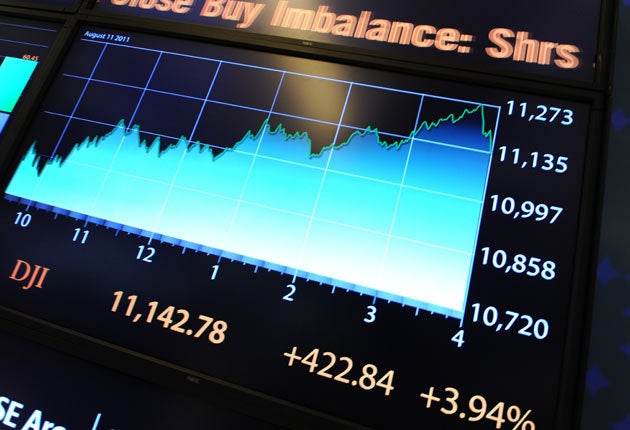Your support helps us to tell the story
From reproductive rights to climate change to Big Tech, The Independent is on the ground when the story is developing. Whether it's investigating the financials of Elon Musk's pro-Trump PAC or producing our latest documentary, 'The A Word', which shines a light on the American women fighting for reproductive rights, we know how important it is to parse out the facts from the messaging.
At such a critical moment in US history, we need reporters on the ground. Your donation allows us to keep sending journalists to speak to both sides of the story.
The Independent is trusted by Americans across the entire political spectrum. And unlike many other quality news outlets, we choose not to lock Americans out of our reporting and analysis with paywalls. We believe quality journalism should be available to everyone, paid for by those who can afford it.
Your support makes all the difference.The shock resignation of the top German official on the board of the European Central Bank (ECB) plunged global stock markets into fresh turmoil yesterday. The ECB announced that Jürgen Stark, the bank's chief economist, will leave his post for "personal reasons". But Mr Stark was known to have been opposed to the ECB's emergency decision to purchase €50bn (£43bn) of Spanish and Italian sovereign bonds last month.
News of the departure of Mr Stark, whose term at the ECB was not due to end until May 2014, sent a signal to markets that the European policymaking elite remains divided over how to deal with the eurozone sovereign debt crisis. The euro sank to $1.365, the lowest level since February on the news. The German stock exchange closed down more than 4 per cent. The FTSE 100 shed 2.35 per cent. And, in New York, the Dow Jones was trading 2 per cent down yesterday afternoon.
The President of the ECB, Jean-Claude Trichet, made an emotional defence of the bank's actions through the eurozone sovereign debt crisis at a press conference earlier this week, suggesting that he is feeling under increasing pressure. Mr Stark's resignation also reinforces an impression of growing German alienation from the moves by European leaders in recent months to keep the eurozone from breaking apart.
Mr Stark was not alone on the ECB board in opposing the purchase of Italian and Spanish bonds last month. He is reported to have been joined by the president of the Bundesbank, Jens Weidmann. Mr Weidmann's predecessor at the German central bank, Axel Weber, was also unhappy with the policy. Mr Weber, once seen as a successor to Mr Trichet at the ECB this year, resigned from the bank's board in April in objection to the purchase of Greek, Irish and Portuguese bonds.
The ECB was forced to buy the bonds last month because the deal agreed by eurozone leaders in July, which would allow a special European fund to perform this function, has not been ratified by national parliaments.
Greece also weighed on markets amid rumours – dismissed as "rubbish" by Athens – that it will default on its debt this weekend. About 70 per cent of its bondholders are said to have agreed to a debt swap deal.

Join our commenting forum
Join thought-provoking conversations, follow other Independent readers and see their replies
Comments